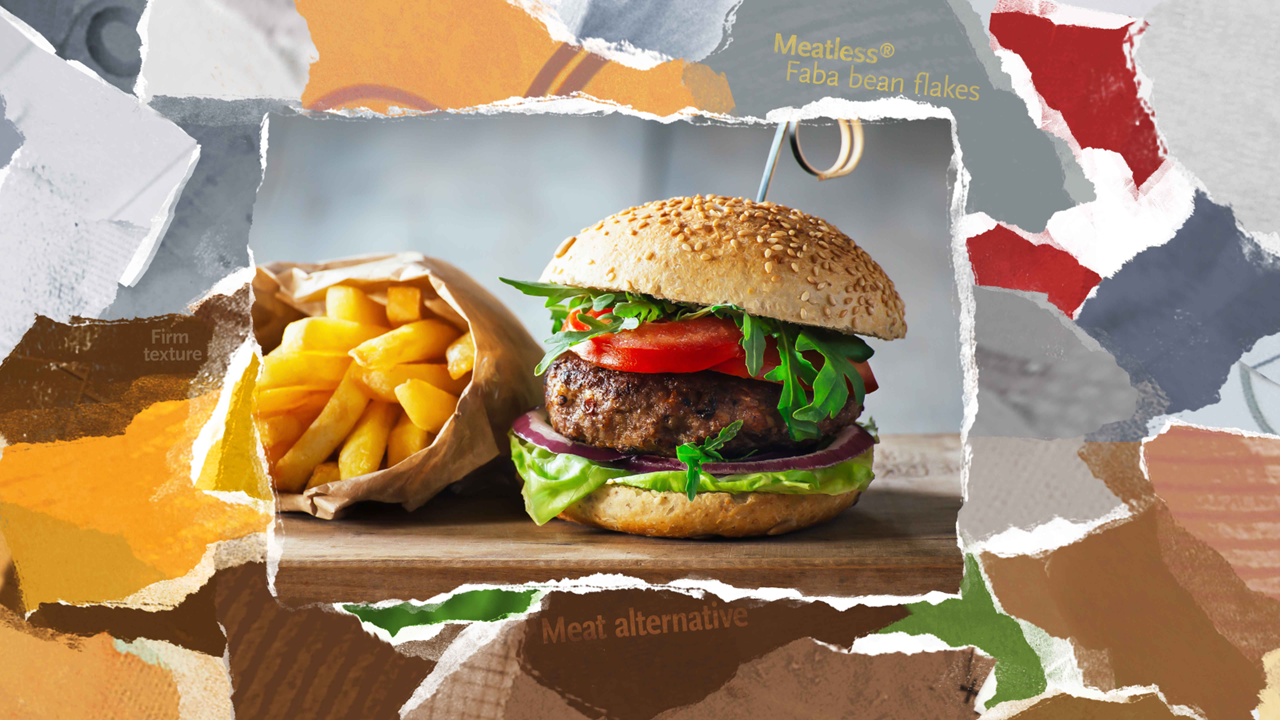Faba bean protein, derived from Vicia faba, is emerging as a high-quality, sustainable plant-based protein that is rapidly gaining traction in the food industry.
Faba beans contain up to 30% protein and an impressive amino acid profile that rivals that of both soy and animal proteins. This makes it a versatile alternative for formulations ranging from bakery and dairy alternatives to meat substitutes.
The neutral taste and light color of the faba bean fractions make it a versatile ingredient. Its protein concentrate offers unique functionalities, such as excellent emulsification and foaming properties compared to other plant proteins, making it ideal for allergen-free or egg-free products.

Product Manager Functional Proteins
BENEO
Furthermore, as a nitrogen-fixing crop, faba beans contribute to improved soil health and reduced reliance on synthetic fertilizers, reinforcing their environmental benefits.
Recent advances in extraction technologies have enhanced faba bean protein’s quality and versatility, making it a promising solution for sustainable protein ingredients.
In this Xtalks Spotlight edition, we explore the benefits, applications and environmental impact of faba bean protein concentrate through an insightful conversation with Frederic Fernandes, BENEO’s Product Manager for Functional Proteins.
With a background in agricultural engineering and a passion for innovation, Frederic shares why faba bean protein concentrate is capturing the attention of food manufacturers and consumers alike.
A Historical Crop with Modern Appeal
Faba beans have been cultivated for thousands of years, historically serving as a staple in the diets of Mediterranean and Middle Eastern cultures.
As Frederic notes, “Up to 30% of faba bean content is protein, which makes it an excellent target to extract proteins for the food industry. This protein is also high quality. Faba bean protein has an excellent essential amino acid profile that is very balanced, which makes it a great alternative to soy and animal proteins.”
Therefore, this makes faba bean an ideal candidate for food applications that require high-quality protein.
In addition, faba bean protein boasts functional properties that are advantageous for various food formulations, positioning it as a prime alternative in today’s rapidly evolving plant-based market.
Diverse Applications Across the Food Spectrum
One of the standout features of faba bean protein concentrate is its flexibility in food applications.
According to Frederic, manufacturers are already using it to replace both soy and animal proteins in a variety of products, including:
- Bakery: Faba bean protein concentrate can substitute eggs, contributing, for example, to the texture, binding, emulsifying and foaming properties, depending on the type of plant-based baked goods.
- Dairy Alternatives: Its neutral taste and light color make it applicable for use in plant-based dairy products. Faba bean protein concentrate can be added to increase the protein content in plant-based products and make them in this way more comparable in protein content to the dairy version.
- Meat and Fish Alternatives: Faba bean protein concentrate is primarily used to increase protein content, helping plant-based products meet nutritional targets. Its balanced essential amino acid profile also supports the development of alternatives that aim to replicate the nutritional benefits of animal proteins.
- Snacks: For instance, in the case of protein bars, faba bean protein concentrate is added to increase protein content, whereby it is possible to make high-protein bars.
Frederic emphasizes that while bakery and dairy applications are currently the most prominent, the versatile nature of faba bean protein means that its full potential has yet to be fully tapped.
A Sustainable Alternative for the Future
Faba bean protein stands out for its environmental benefits, making it an ideal ingredient for a sustainable food system.
It’s a nitrogen-fixating crop that naturally enriches the soil by converting atmospheric nitrogen into a form usable by plants. This process not only enhances soil health but also significantly reduces the need for synthetic fertilizers, thereby lowering the overall environmental impact.
“The environmental impact of faba bean is very favorable. It’s very low, and it’s a very sustainable crop with regards to CO2 output. If you’re going to compare it to the more commonly grown crops like wheat and soy, faba bean is an excellent crop with regards to sustainability,” says Frederic.
Frederic also highlights that BENEO sources faba beans from farms located near a factory in Germany, ensuring a short supply chain that minimizes transportation-related carbon emissions. Therefore, compared to soy and pea proteins — often imported from distant regions — BENEO’s faba bean protein concentrate offers a lower carbon footprint and a more environmentally friendly production process in Europe.
Modern processing optimizes extraction methods to use less water and energy while preserving the protein’s quality and functionality.
This clean-label ingredient supports food manufacturers in developing products that meet both consumer expectations and sustainability targets. In this manner, faba bean contributes to environmental stewardship from farm to fork.
Technical and Nutritional Advantages
Frederic outlines several technical and nutritional benefits that make faba bean attractive to product developers:
- Neutral Flavor and Light Color: Unlike some plant proteins that require masking agents, faba bean protein concentrate’s mild flavor allows for seamless incorporation into various formulations without altering the intended taste profile.
- Functional Versatility: It supports emulsification better than many other plant proteins — a key property for vegan dressings and some dairy alternatives. Additionally, its foaming properties are beneficial in whipped vegan bakery or dairy products, and its good solubility enhances the quality of protein shakes and dairy-free drinks.
- Balanced Amino Acid Profile: The well-rounded essential amino acid composition makes faba bean protein concentrate an ideal candidate for achieving a complete protein profile when combined with other plant-based sources such as wheat or rice.
- Allergen-Friendly: Unlike soy and wheat proteins, faba bean protein is generally not considered a major allergen, adding another layer of appeal for consumers with sensitivities.
Faba Bean Isolate vs. Concentrate: Choosing the Right Form
Understanding the difference between a faba bean protein isolate and concentrate is crucial for product formulation. Frederic explains that the key distinctions lie in the protein content and processing methods:
- Protein Concentrate: Contains about 50% to 70% protein and is produced through dry fractionation. This process retains more of the natural ingredients, such as fiber, starch and micronutrients, which can be beneficial in applications like baked goods or snacks where texture is important.
- Protein Isolate: Contains 80% to 95% protein and is produced by soaking milled beans in water, followed by temperature and acidity adjustments to separate the protein from starches. Although this method yields a higher protein content, it requires more water, energy and chemicals, thereby increasing the environmental footprint.
Choosing between isolate and concentrate depends on balancing nutritional performance, texture and sustainability to meet a product’s formulation objectives.
Faba bean protein concentrate is more than just a trend — it represents a substantial step towards sustainable and innovative food solutions. Its balanced nutritional profile, excellent functional properties and environmental benefits make it an attractive alternative to traditional animal and soy proteins.
As the food industry continues to evolve, faba bean protein is poised to play a key role in meeting the demands for high-quality, versatile and sustainable ingredients.
This article was created in collaboration with the sponsoring company and the Xtalks editorial team.










Join or login to leave a comment
JOIN LOGIN